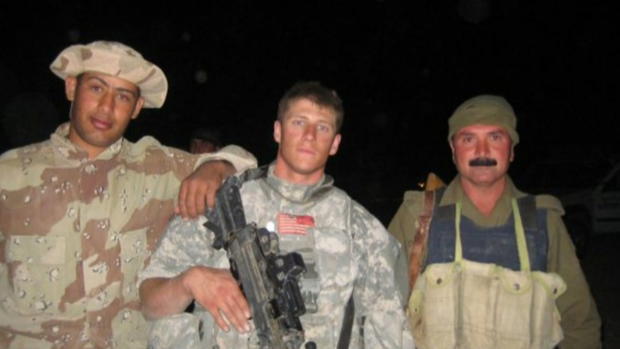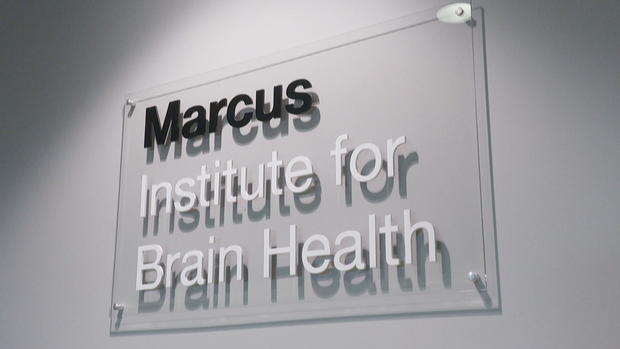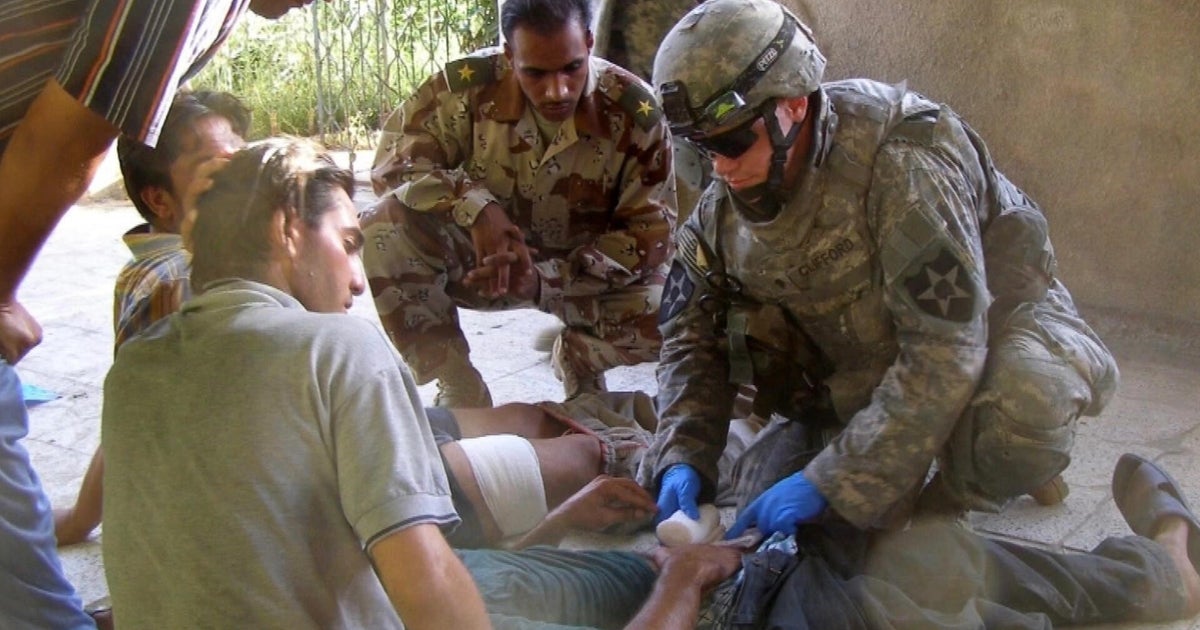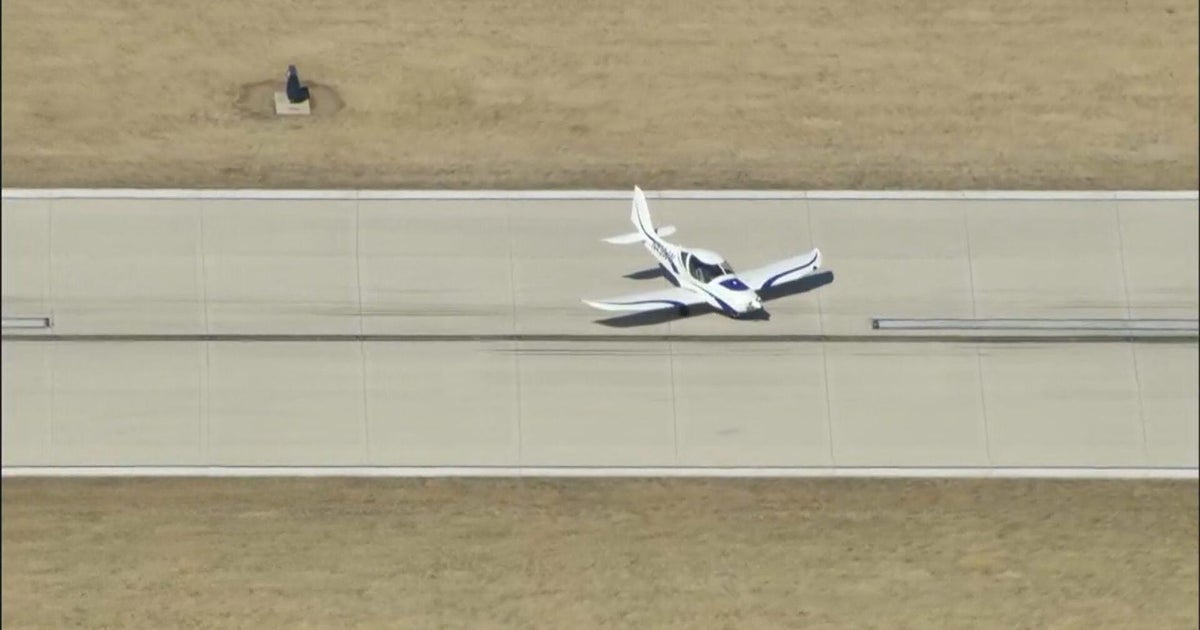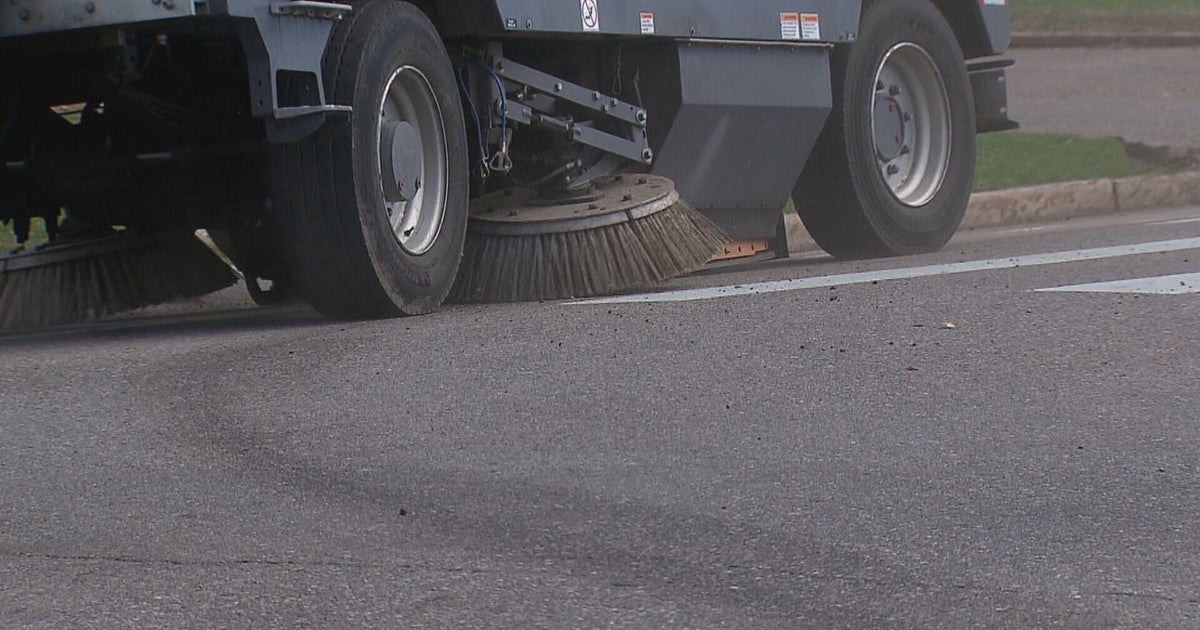'Struggle Is What Creates Strength': Veteran Who Suffered Traumatic Brain Injury Now Helps Others With Recovery
AURORA, Colo. (CBS4) - A veteran of the wars in Iraq and Afghanistan who suffered two traumatic brain injuries while overseas now serves as a resource for others trying to recover from the same experience at the Marcus Institute for Brain Health at the University of Colorado Anschutz Medical Campus.
"I got blown into Dr. Kelly's lap," said Staff Sergeant Spencer Milo (Ret.) of the U.S. Army. "That man saved my life, that program saved my life."
Dr. James Kelly is the executive director of the Marcus Institute for Brain Health on the University of Colorado Anschutz Medical Campus. Milo said Kelly helped him to recover from his traumatic brain injury (TBI) and that eventually lead him to work for the doctor at the institute. He now serves as the Director of Veteran Programs, Communications and Strategic Development.
"Getting that second injury got me to where I am today," Milo said. "Things happen for a reason."
In that role, he manages three different responsibilities for the institute. Helping veterans find the institute and keeping them on the right track after they leave is part of his new mission to make sure they keep a focus on patients, not their injuries. He also runs social media and the web presence for the institute. Fundraising and finding partnerships is another part of his job, opportunities to team up with nonprofits, veteran groups, and other academic centers.
The institute focuses on veterans and retired athletes needing treatment for mild to moderate TBIs including concussions and changes in their psychological health.
"Struggle is what creates strength," he said. "The only way we get stronger in life is by going through tough times."
Milo was the lead gunner in the front truck on a routine mission in Iraq when that vehicle crashed while they were trying to escape enemy fire. He hit his head but went on working the next day, not learning until much later and more medical screening that he had a TBI. He served in Iraq for 16 months between 2007 and 2008. Doctors told him that he had a cancerous tumor and only would live six months. He made it past that point but remembers needing 23 pills three times a day and his wife to help shower him. A second opinion revealed that he was misdiagnosed.
"Learned a lot about myself, a lot about my wife," he said.
Six months after he was cleared of that injury, he got deployed to Afghanistan. Milo said he knew he needed to go back and serve again. But while in that country, near the Pakistan border he and other soldiers were hit by a child suicide bomber that detonated near them. Shrapnel hit his face and back and he had another TBI. But this time Milo said he advocated more for himself during medical treatment. Asking more questions of his doctors and their recommendations, he felt better about the choices made in his recovery.
"With struggle comes strength and realistically if you want to," he said. "You can get past anything with a good support structure."
His service in Afghanistan ended in 2011 and he was medically retired in 2013. His work since then to help remove the stigma around TBIs gained the attention of the Headstrong Project. A free service for mental health treatment needed by post 9/11 veterans and their families. Milo received the Moral Courage Award at a ceremony in New York City last month.
"It does bring some credibility to the words that come out of my mouth," he said. "I know I'm on the right track."
But Milo also used the opportunity to honor his significant other for her service and sacrifice. Married ten years since May, his wife has been a part of his recovery since before their wedding.
"I don't remember asking her to marry me," Milo said.
While his wife said it did not matter he had lost that memory because of his injuries, he wanted to recreate the moment. When he was unable to make that happen on their 10-year anniversary, he decided the award ceremony would be another opportunity for the couple.
"I got down on one knee and I re-proposed to her," he said. "I don't think she is going to ever forget that, I sure hope not, I know I'm not."
His story has not only received recognition from veterans organizations this year but also President George W. Bush in 2017 for the book, "Portraits of Courage." Milo says he does not believe he deserves to be in the same company as the other veterans selected by the former president but he is humbled by that honor as well.
"The other heroes that are in that book are just some of the best people this nation has ever had," Milo said. "Having my face and story alongside those is pretty incredible."
Reflecting on another Veterans Day in his current position with the Marcus Institute, he hopes the divide between civilians and service members can be bridged by better understanding. He wants the public to take time to listen to a veteran's story and see how they can continue to serve their country outside of the military.
"The veterans and service members of our nation are going to be the next greatest generation and we need to give them that chance," he said. "We are just like everyone else, we just want to contribute however we can."
